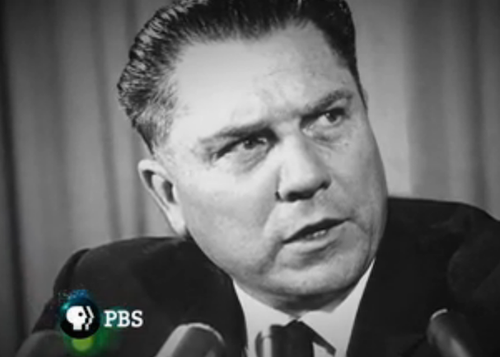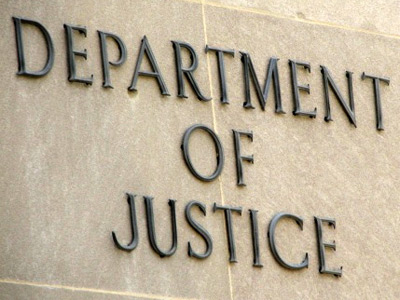
In 2004, the then-US Attorney for the District of Maryland famously wrote in a leaked email that he wanted three front-page indictments by November of that year. Though open to interpretation, the impression left by the poorly-drafted missive is that prosecutors should seek headlines rather than justice.
Let’s give credit to the prosecutors involved in the Petraeus/ Broadwell affair, er, matter for their exercise of sound discretion.
Assuming the accuracy of the news reports, Paula Broadwell potentially subjected herself to indictment for any number of federal crimes. In his paper entitled Computer and Internet Crime, G. Patrick Black, a federal defender in Texas, analyzes a number of cyberstalking statutes. As Black writes:
Under 18 U.S.C. 875(c), it is a federal crime to transmit any communication in interstate or foreign commerce containing a threat to injure the person of another. Section 875(c) applies to any communication actually transmitted in interstate or foreign commerce – thus it includes threats transmitted in interstate or foreign commerce via the telephone, e-mail, beepers, or the Internet. Title 18 U.S.C. 875 is not an all-purpose anti-cyberstalking statute.
First, it applies only to communications of actual threats. Thus, it would not apply in a situation where a cyberstalker engaged in a pattern of conduct intended to harass or annoy another (absent some threat). Also, it is not clear that it would apply to situations where a person harasses or terrorizes another by posting messages on a bulletin board or in a chat room encouraging others to harass or annoy another person.
Next, as Black continues, certain forms of cyberstalking also may be prosecuted under 47 U.S.C. 223. One provision of this statute makes it a federal crime, punishable by up to two years in prison, to use a telephone or telecommunications device to annoy, abuse, harass, or threaten any person at the called number.
The statute also requires that the perpetrator not reveal his or her name. See 47 U.S.C. 223(a)(1)(c). Although this statute is broader than 18 U.S.C. 875– in that it covers both threats and harassment –Section 223 applies only to direct communications between the perpetrator and the victim. Thus, it would not reach a cyberstalking situation where a person harasses or terrorizes another person by posting messages on a bulletin board or in a chat room encouraging others to harass or annoy another person. Moreover, Section 223 is only a misdemeanor, punishable by not more than two years in prison.
The most likely statute under which charges may have been brought against Broadwell is 18 U.S.C. 2261A, also known as the Interstate Stalking Act. The ISA makes it a crime for any person to travel across state lines with the intent to injure or harass another person and, in the course thereof, places that person or a member of that person’s family in reasonable fear of death or serious bodily injury causes substantial emotional distress to that person [or a member of their family.]” This assumes, of course, that Broadwell traveled across state lines with such an intent. Assuming she did and assuming prosecutors could establish such an intent, it is both surprising and refreshing that prosecutors apparently decided not to bring criminal charges.
As I have written before, some public figures, such as government employees, are justifiably subject to a higher standard of conduct. However, it might be difficult for an agent or a prosecutor to resist a viable federal charge against a celebrity that would be an easy declination if the target were an average citizen.
See, for example, United States v. John Edwards, one of many recent cases that suggest that prosecutorial discretion is not working. Given the success of her book, the ironically-named “All In,” and her various television appearances, Paula Broadwell was by some measure a celebrity. Given the recent news coverage, she most certainly has attained that status at this point. Even with the best of intentions, a prosecutor may have been seduced at the notion of a publicity-generating case against such a high-profile target.
By its very nature, prosecutorial discretion depends on decisions made by individual prosecutors. And there are marked differences in individual prosecutors. A busy federal prosecutor in a major city may be less inclined to take a marginal case than a federal prosecutor in a slower jurisdiction. A new federal prosecutor trying to make a name for him/herself might be more inclined to investigate a high-profile target aggressively than a seasoned veteran who has already seen his or her share of big cases.
Admittedly, white collar laws have to be drawn broadly in order to permit federal prosecutors to combat the increasingly creative, technologically complex efforts of enterprising criminals. At least one downside of such broadness is that a large number of people may find themselves under federal investigation for conduct that can better be addressed in a different forum, or no forum at all. Most prosecutors, do, in fact, make rational decisions based upon the best possible expenditure of resources, the assessment of the jury appeal of a particular case, and the desire to maintain a good reputation with the bench and the bar.
However, prosecutors and investigators too often fail to recognize that they may view a case against a high-profile target differently than a case against an average citizen and should consider, in making charging decisions, whether the identity of the target is a valid consideration or not. The decision not to pursue criminal charges against Broadwell is perhaps a signal that discretion might be working after all.





